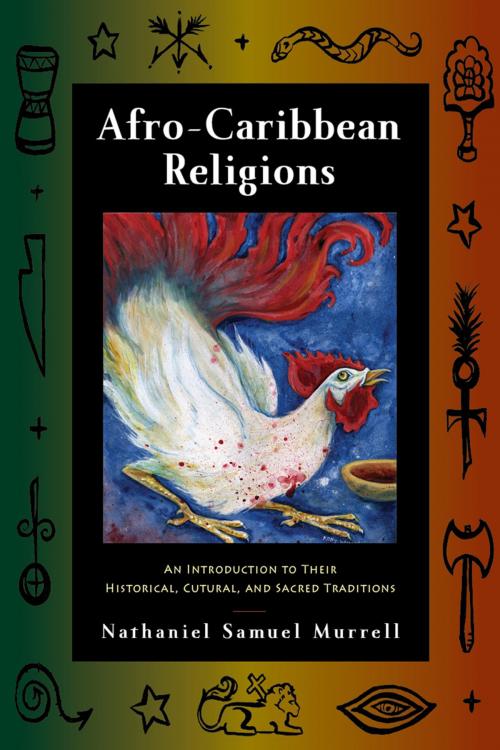Afro-Caribbean Religions
An Introduction to Their Historical, Cultural, and Sacred Traditions
Nonfiction, History, Americas, Caribbean & West Indies, Religion & Spirituality, Reference, Comparative Religion| Author: | Nathaniel Samuel Murrell | ISBN: | 9781439901755 |
| Publisher: | Temple University Press | Publication: | January 25, 2010 |
| Imprint: | Temple University Press | Language: | English |
| Author: | Nathaniel Samuel Murrell |
| ISBN: | 9781439901755 |
| Publisher: | Temple University Press |
| Publication: | January 25, 2010 |
| Imprint: | Temple University Press |
| Language: | English |
Religion is one of the most important elements of Afro-Caribbean culture linking its people to their African past, from Haitian Vodou and Cuban Santeria—popular religions that have often been demonized in popular culture—to Rastafari in Jamaica and Orisha-Shango of Trinidad and Tobago. In Afro-Caribbean Religions, Nathaniel Samuel Murrell provides a comprehensive study that respectfully traces the social, historical, and political contexts of these religions. And, because Brazil has the largest African population in the world outside of Africa, and has historic ties to the Caribbean, Murrell includes a section on Candomble, Umbanda, Xango, and Batique.
This accessibly written introduction to Afro-Caribbean religions examines the cultural traditions and transformations of all of the African-derived religions of the Caribbean along with their cosmology, beliefs, cultic structures, and ritual practices. Ideal for classroom use, Afro-Caribbean Religions also includes a glossary defining unfamiliar terms and identifying key figures.
Religion is one of the most important elements of Afro-Caribbean culture linking its people to their African past, from Haitian Vodou and Cuban Santeria—popular religions that have often been demonized in popular culture—to Rastafari in Jamaica and Orisha-Shango of Trinidad and Tobago. In Afro-Caribbean Religions, Nathaniel Samuel Murrell provides a comprehensive study that respectfully traces the social, historical, and political contexts of these religions. And, because Brazil has the largest African population in the world outside of Africa, and has historic ties to the Caribbean, Murrell includes a section on Candomble, Umbanda, Xango, and Batique.
This accessibly written introduction to Afro-Caribbean religions examines the cultural traditions and transformations of all of the African-derived religions of the Caribbean along with their cosmology, beliefs, cultic structures, and ritual practices. Ideal for classroom use, Afro-Caribbean Religions also includes a glossary defining unfamiliar terms and identifying key figures.















